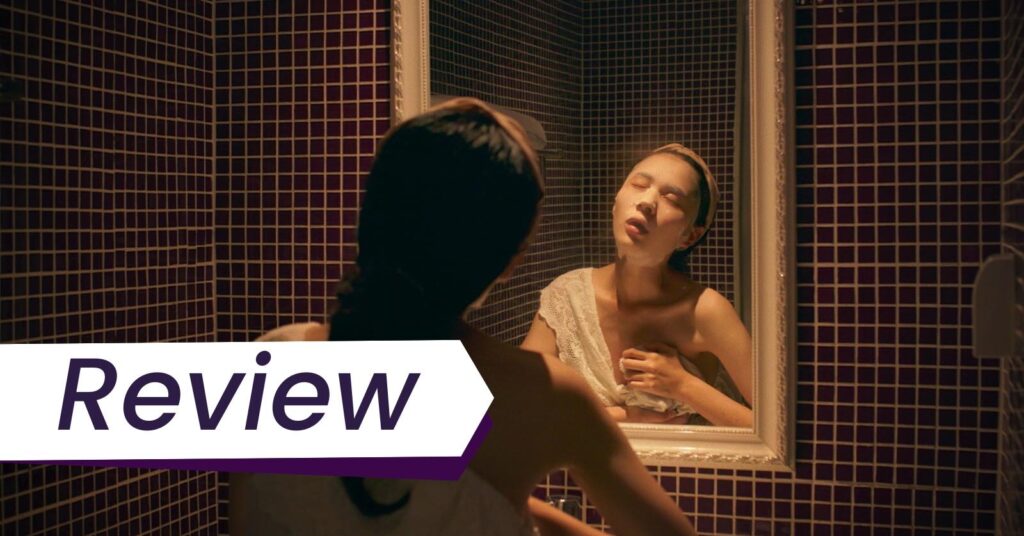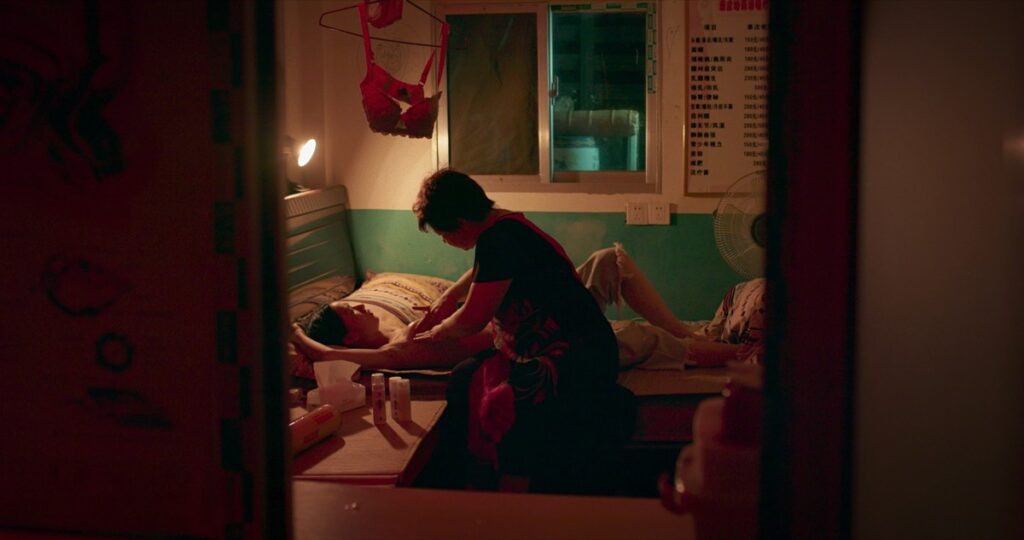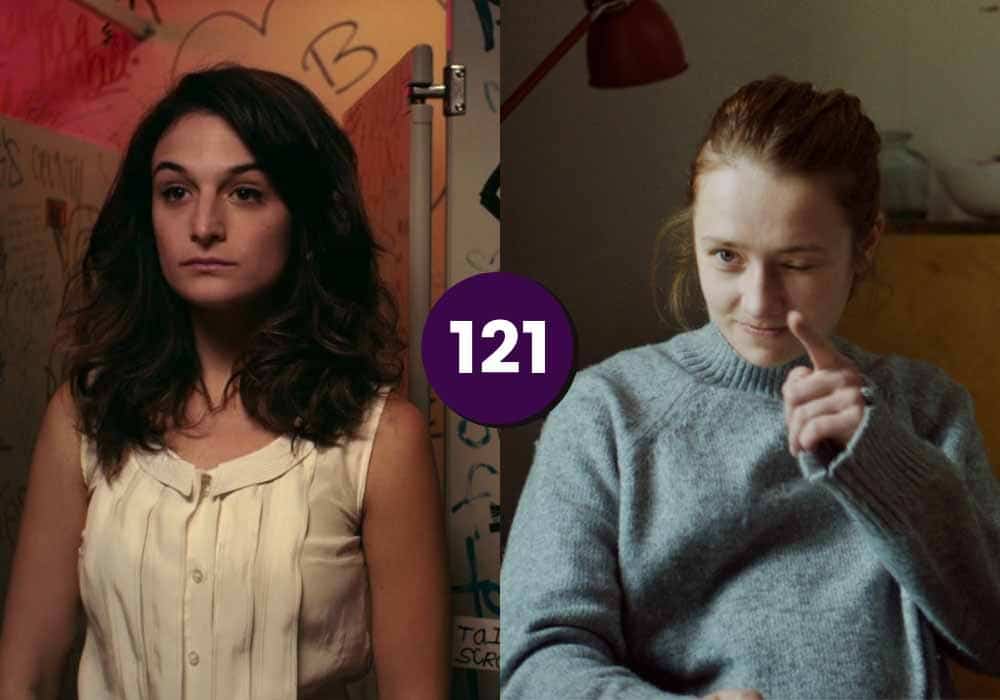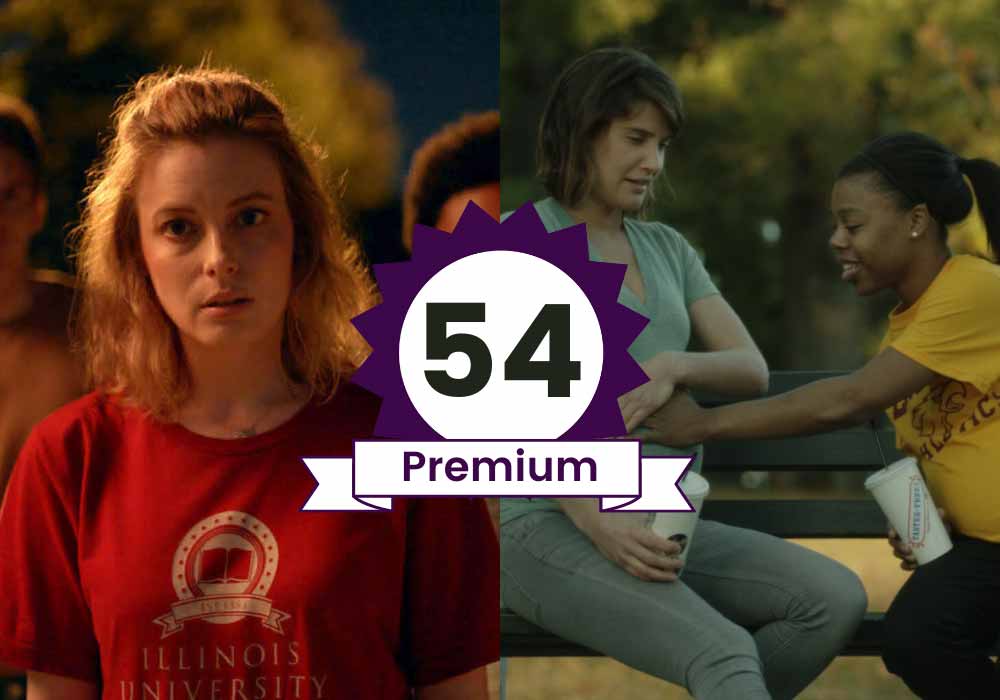Alex Heeney reviews Huang Ji and Ryuji Otsuka’s film Stonewalling. China’s two-child policy casts a long shadow on twenty-year-old Lynn who finds herself with an unwanted pregnancy — and loses most of her agency along the way.
Toronto International Film Festival both in cinemas and digitally across Canada. It’s one of TIFF’s Best Acquisition Titles (seeking North American/UK distribution) of 2022. An excerpt of our review of the film Stonewalling will appear on the list when it’s published next week. Read all of our TIFF 2022 coverage here.

Discover one film you didn’t know you needed:
Not in the zeitgeist. Not pushed by streamers.
But still easy to find — and worth sitting with.
And a guide to help you do just that.

Don’t miss out on reviews of the best films on the fall film festival circuit like Stonewalling
Join our FREE newsletter today to become a Seventh Row inside. You’ll get updates on how to see the best under-the-radar films, up-to-the-minute updates from our festival coverage, and tips on where to catch these near you.
In Huang Ji and Ryuji Otsuka’s Stonewalling, a twenty-year-old student studying to be a flight attendant, Lynn (Yao Honggui), gets stonewalled in every aspect of her life when she finds herself with an unwanted pregnancy. It allows Ji and Otsuka to explore how babies and women’s fertility has been commodified in present day China, where the two-child policy has replaced the one-child policy: it’s the age of designer babies instead of forced abortions. At the same time, the filmmakers are sensitive to all the ways Lynn is denied privileges — as a young woman whose most valuable asset is seen to be her body, and as a pregnant woman who loses all agency. At two and a half hours long, it’s hefty, but the filmmakers use the runtime to make fruitful detours into different aspects of both pregnancy and the fertility industry today — including the new eugenics.
Everyone around Lynn tries to commodify her and remove her agency. First, there’s the boyfriend who pushes her to abort the fetus, in a scene set in a hotel room, where he won’t even turn away from his desk to look at her, seated on the bed. No matter how many times she asks him what he wants or thinks, he avoids giving a straight answer, and keeps claiming that an abortion is the only option for her and best for her — while refusing to actually talking about it. Next, there’s her family who are in so much debt that Lynn has to send every spare penny to them, whilst already struggling to support herself in the gig economy. And finally, there’s the man whom Lynn thinks could be the solution to her and her family’s problems, who spends the entire movie avoiding answering her questions — to the point where you know it’s going to end badly.
Lynn, not yet finished schooling and thus can not yable to get work in her field of study, gets pulled into the fertility industry as a way to make easy cash by donating her eggs. That’s how she finds out she’s pregnant at one month. With plans to donate once she’s dealt with the unwanted pregnancy, she finds more administrative odd jobs in the industry to do in the meantime. One night, she’s in charge of caring for the girls who are meant to be donating by keeping them in strict quarantine. It’s pre-pandemic, and they can only leave their rooms wearing a mask. Lynn is also meant to police what they eat to put them in optimal health for the donation. Ferreting the young women to meet the potential egg buyers the next day, she’s in charge of overseeing the interviews, which prove to be an exercise in eugenics.
In their film Stonewalling, writer-directors Huang Ji and Ryuji Otsuka reveal the fertility market as one that caters to rich people seeking ideal genetic material for their limited offspring. We watch several interviews with prospective donors play out, in which the buyers size up these young girls for their ‘genetic potential’. Not just how they look or the state of their health, but how educated and intelligent they are based on their chosen careers. Never mind that educated polish and career availability is determined privilege rather than innate genetics, these prospective parents are operating under eugenicist ideas of old. If they’re paying, then it’s “survival of the fittest” — a eugenics idea, not Darwin’s. Though young, healthy, and pretty, Lynn is fairly ordinary, but more educated than others. People regularly tell her how she should donate her eggs, often privately as a way of slagging off the other girls. Some prospective fathers even use this opportunity to hit on her under the guise of potentially being interested in her eggs.

Don’t miss out on the best films on the fall film festival circuit
Join our FREE newsletter today to become a Seventh Row inside. You’ll get updates on how to see the best under-the-radar films, up-to-the-minute updates from our festival coverage, and tips on where to catch these near you.
Lynn’s exposure to the fertility industry gives her the obviously disastrous idea of killing two birds with one stone: have the baby she doesn’t want as a way of paying her parents’ debts. Her parents run a medical clinic, and the debt is due to a malpractice suit (or perhaps the threat of one, given how much is handled under the table) from a patient who had a stillborn child — a death that was unjustly blamed on Lynn’s parents. Lynn figures she’s prime baby-making material, so she can trade their debtors her baby for their lost baby. But she only ever deals with the uncle of the woman who lost her baby. He claims to be a go-between, but we never meet the woman he’s supposedly intervening for. They have no written agreement, though he, too, adds vague eugenicist criteria about the baby’s health needing to meet requirements for him to take it. As the film goes on, he gets more and more evasive, foretelling a bad outcome.
One of the best parts of Stonewalling is the attention to detail the film pays to the ways in which Lynn’s pregnancy impacts every aspect of her life. The opening scene finds her at a networking party with her boyfriend, when she suddenly feels ill. First, that separates her from the party, as she finds a quiet place to sit inside; then, when she leaves, she loses the opportunities her boyfriend is luxuriating in. He doesn’t leave with her. Already, her body is limiting her options. When her body seems like it could afford her a financial opportunity — donating her eggs — she has the double problem of an already stressful unwanted pregnancy and the fact that it’s going to directly interfere with her potential income, in the limited means work that is available to her.
Early in the film, Lynn’s friend counsels her to make her decision about the abortion as soon as possible, because the longer she draws it out, the harder it will be on her body. Ji and Otsuka pay particular attention to how hard the pregnancy is on her body. She left the party because her breasts were sore. By the time she goes home to her parents a couple of months later, she needs her mother to massage and soothe them because they’re so sore. Her mother even warns her that it’ll only get worse — when she’s producing milk she can’t use for a child she no longer has.

At first, she can do most activities, but the bigger her belly grows, the harder simple tasks like tidying and organizing her parents’ clinic get. Ji and Otsuka further ratchet up the tension because after Lynn hits the point of no return with the pregnancy, the man who is supposed to take this unwanted child becomes sketchier and sketchier. She made a deal to suffer through this under the proviso that it would just be for a few months and her whole family could get their lives back. But we know, even if she doesn’t yet, that she’s in a whole other mess.
Stonewalling is one of the rare films made since the COVID-19 pandemic to actually incorporate the pandemic into the film rather than pretend it’s not happening. (The film industry is doing enough of that as it is.) In the final act of the film, COVID hits. Ironically, it’s a boon for business since masks are selling like hotcakes. At the same time, it provides yet another excuse, this time seemingly one outside of his hands, for the man who keeps delaying taking Lynn’s newborn. Like the TIFF Short Cuts (TIFF’s program for international short films) film Same Old, Stonewalling isn’t really about the pandemic, but it does show how it’s just one added stressor for people who are already crumbling under economic and social pressures.

Don’t miss out on the best films on the fall film festival circuit
Join our FREE newsletter today to become a Seventh Row inside. You’ll get updates on how to see the best under-the-radar films, up-to-the-minute updates from our festival coverage, and tips on where to catch these near you.
Discover more films about unwanted/unexpected pregnancy

Become a Seventh Row insider
Be the first to know about the most exciting emerging actors and the best new films, well before other outlets dedicate space to them, if they even do.




